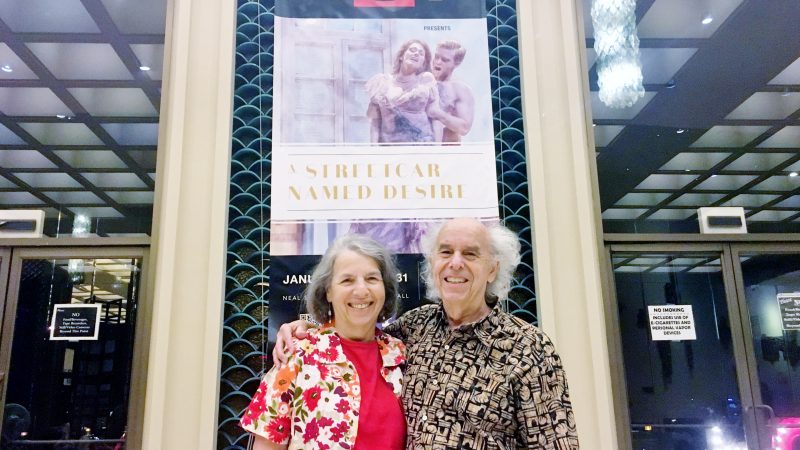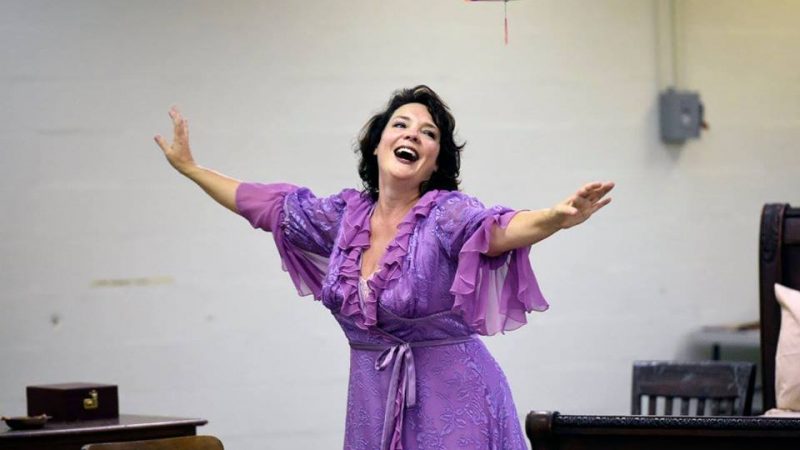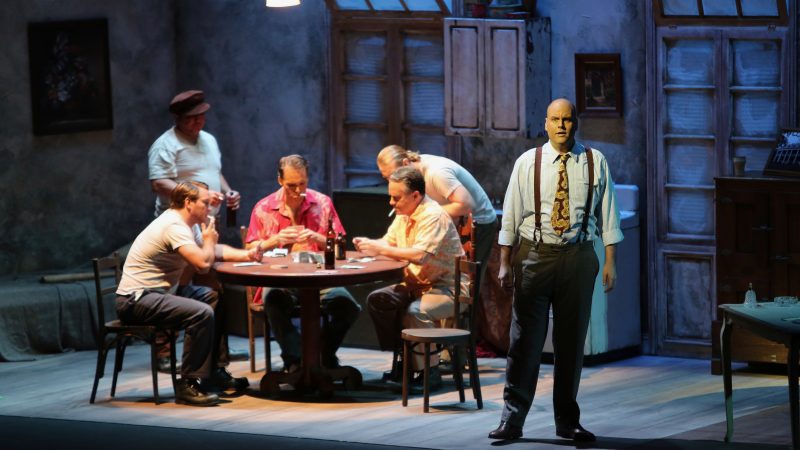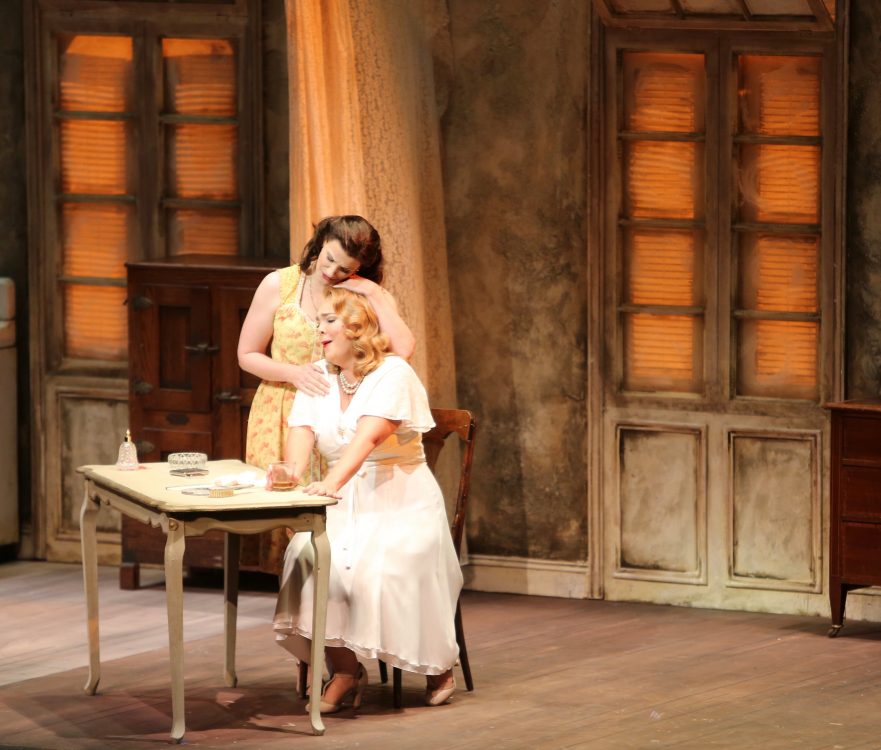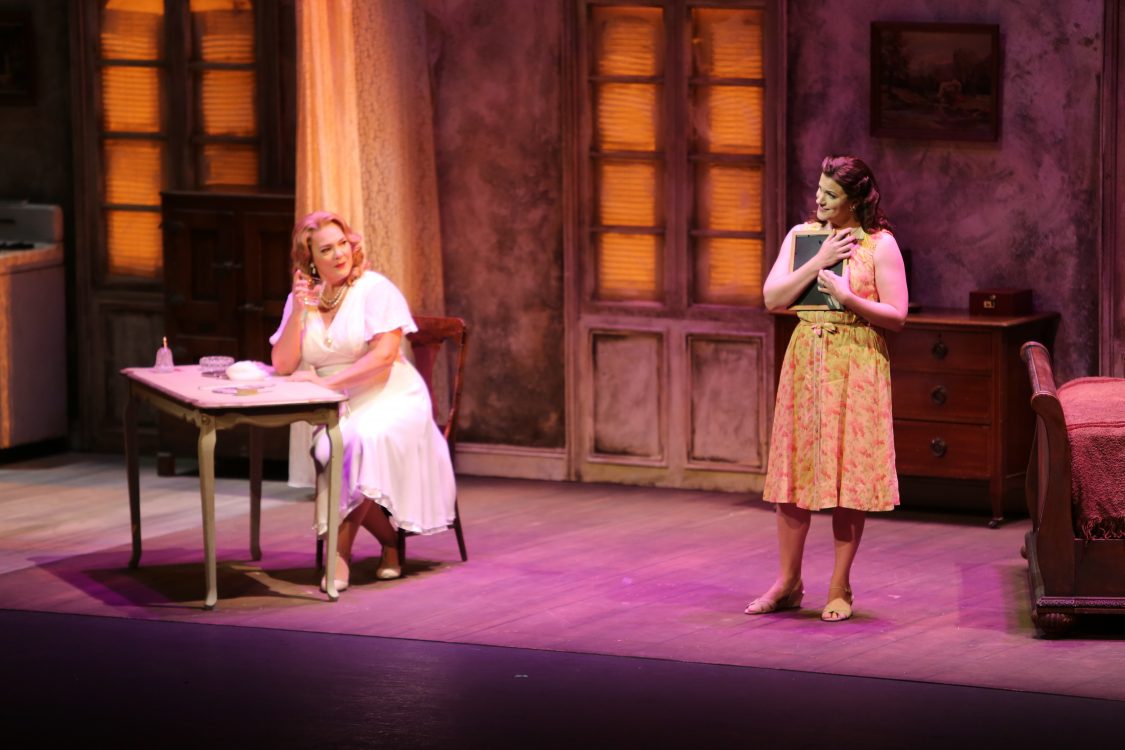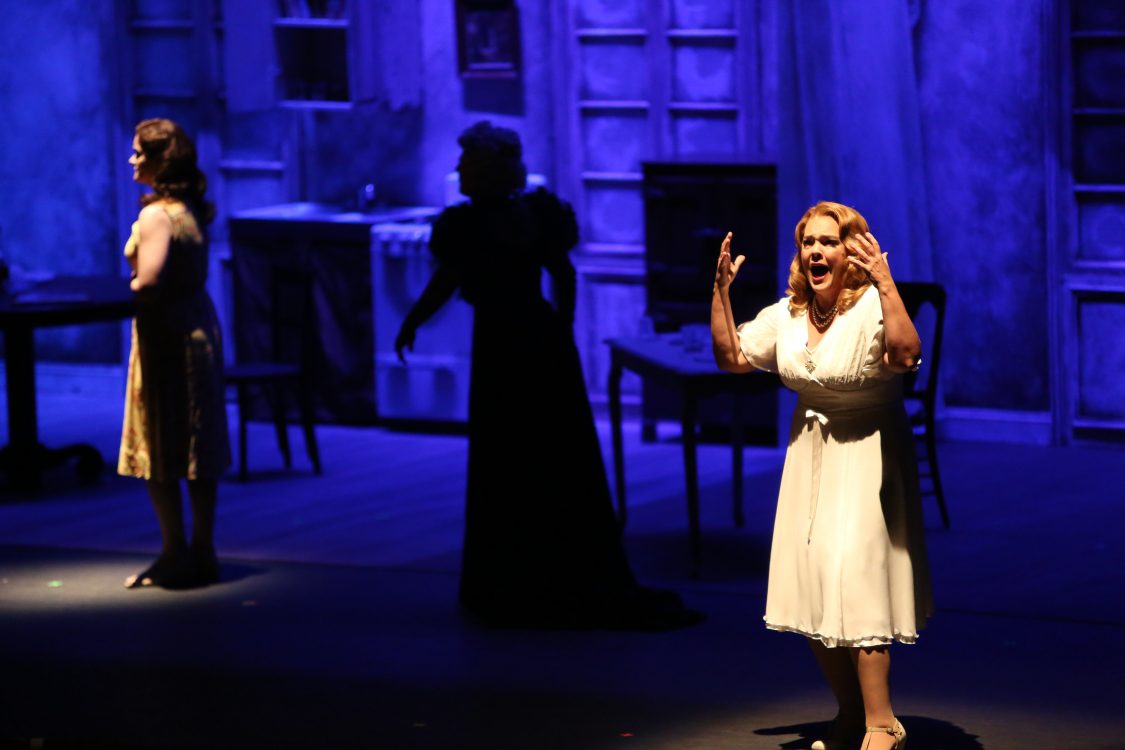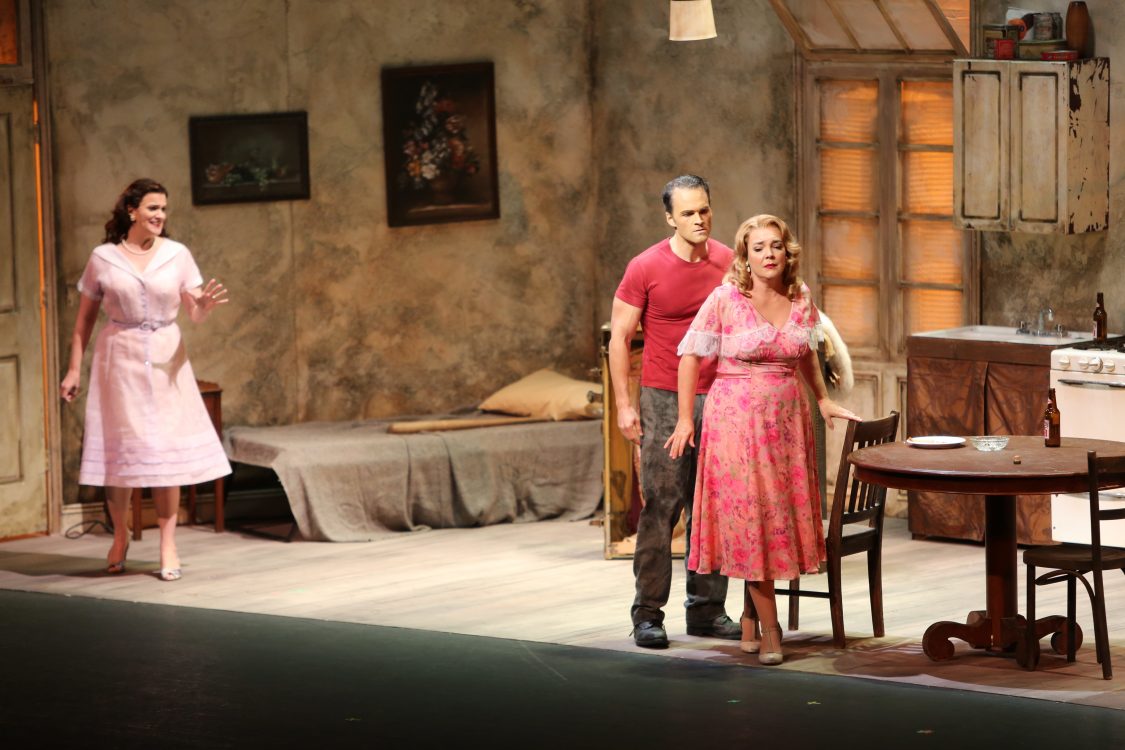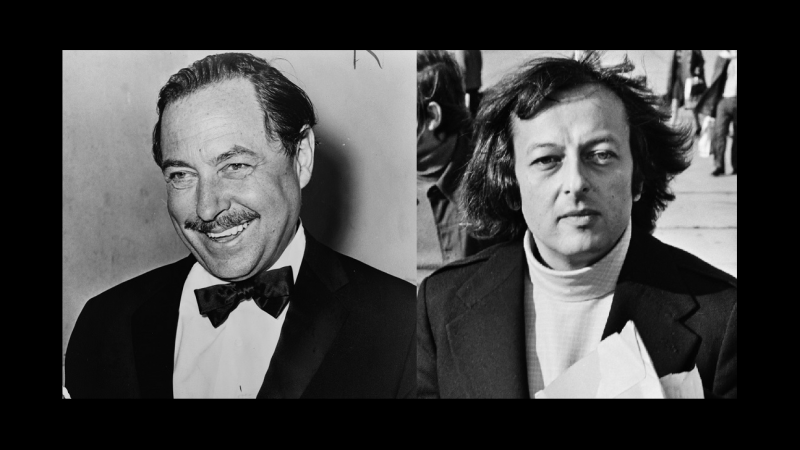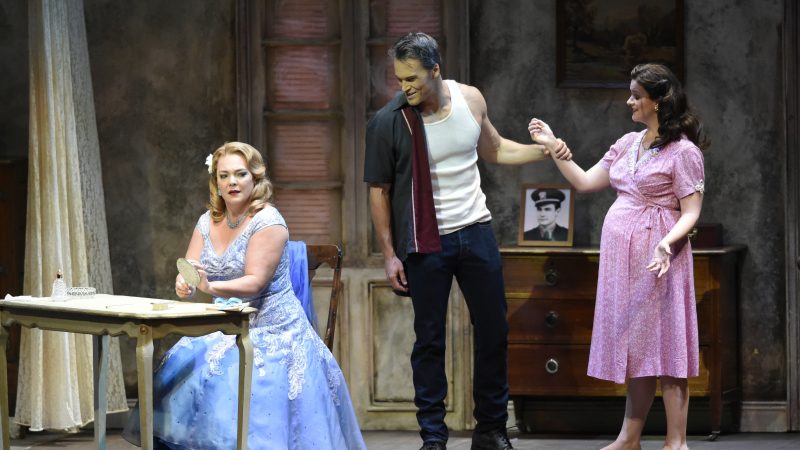These academics from Boston have a message for those considering seeing an opera: It’s not “high-brow.”
Boston Natives Marty and Phyllis Albert have attended at least one Hawaii Opera Theatre production in Honolulu almost every year for two decades.
This year the two attended André Previn’s opera adaptation of the Tennessee Williams play A Streetcar Named Desire on Friday, HOT’s opening night.
“Marty and I were totally open-mouthed, and I’m speechless,” Phyllis said of the production, “by the amazing, unbeatable quality of the performance of Streetcar last evening.”
Marty Albert is a cognitive neurologist and professor of neurology at Boston University Medical School, and Phyllis Albert is a historian at the Harvard University Center for European Studies.
The pair spend their winters on Kauai and travel to Honolulu for one week each year.
“We always time that week with one of the HOT operas,” Marty said. “We call it our culture fix.”
The academic snowbirds have great respect for Hawaiian culture, and they love the welcoming feeling of aloha among locals. The Alberts’ experience with the staff at HOT productions exemplifies the sentiment, they said.
“It is not trivial, this concept of aloha spirit,” Marty said.
The couple makes a point to visit the HOT box office in person each year for their “annual hug” with one of the staffers. Additionally, they also appreciate HOT Artistic Director Henry Akina’s in-person welcome at each production they’ve been to.
And despite their academic titles, they fit in well with the local “aloha attire.”
“We don’t dress up,” Phyllis said.
“That’s who we are – professor or not, Harvard or not,” Marty echoed.
Even in Hawaii, though, many people enjoy dressing up to go to an opera.
Phyllis and Marty support anyone’s choice to dress formally if they want to. But they don’t agree with the classification of opera as a “high-brow” art.
“Opera was meant for the masses,” Phyllis said. “It wasn’t meant for a small group of people specially prepared or dragged to it by some well-meaning grandparent or teacher.”
So on the opening night of A Streetcar Named Desire, the two entered the Neil S. Blaisdell Concert Hall in their usual, casual clothing.
Next year they plan to do the same.
“[HOT has] consistently had high quality productions,” Marty said. “I give credit to the energy and commitment of the people who try to put it together.”
And the true aloha that was cultivated among those same people greeted the couple again with a warm “Hello” from Henry Akina.
“To have an opportunity to connect with the staff, that’s sort of aloha,” Marty said. “It’s a welcoming feeling. It’s very different from the big city and the concerts in Boston.”

